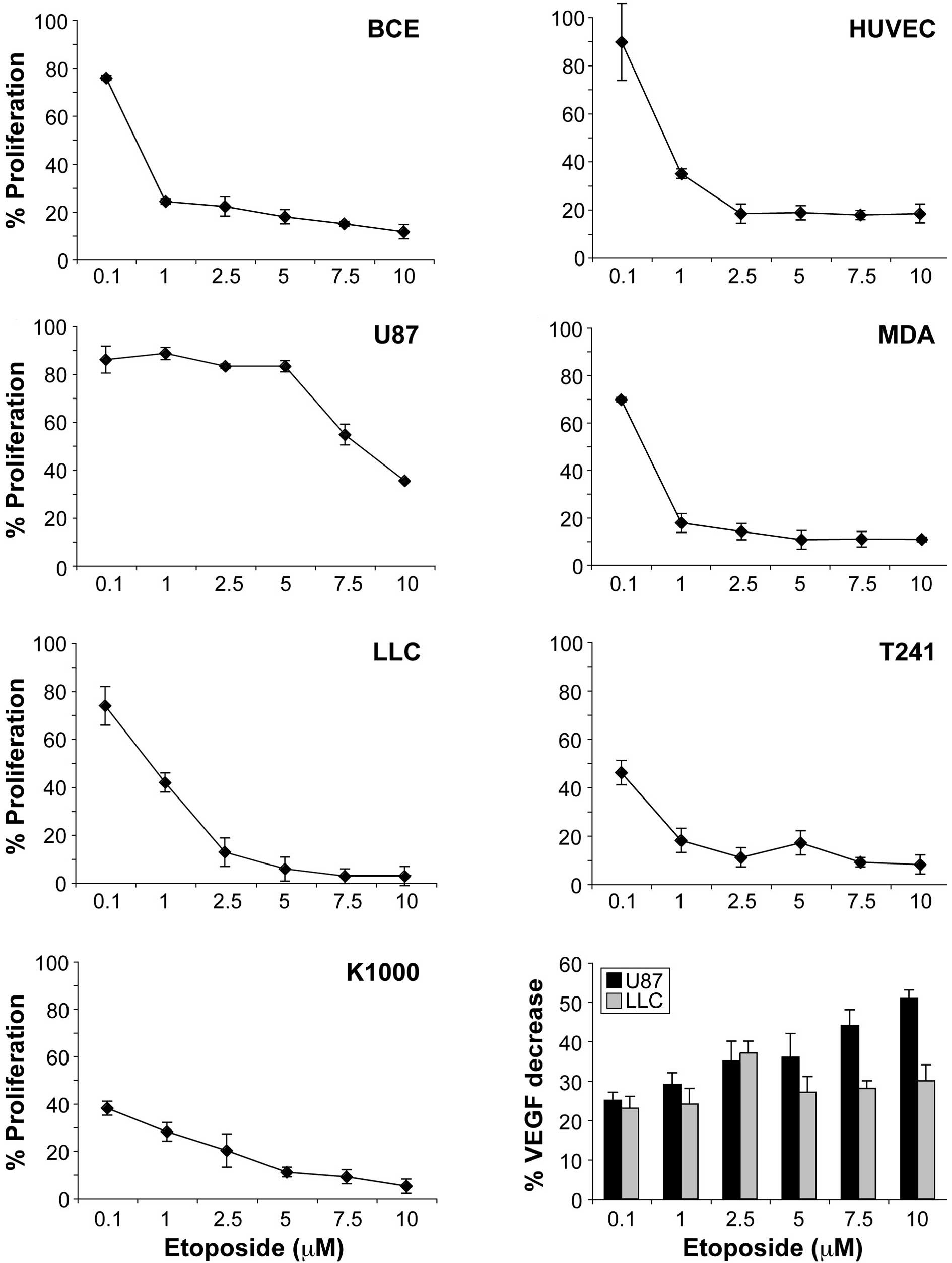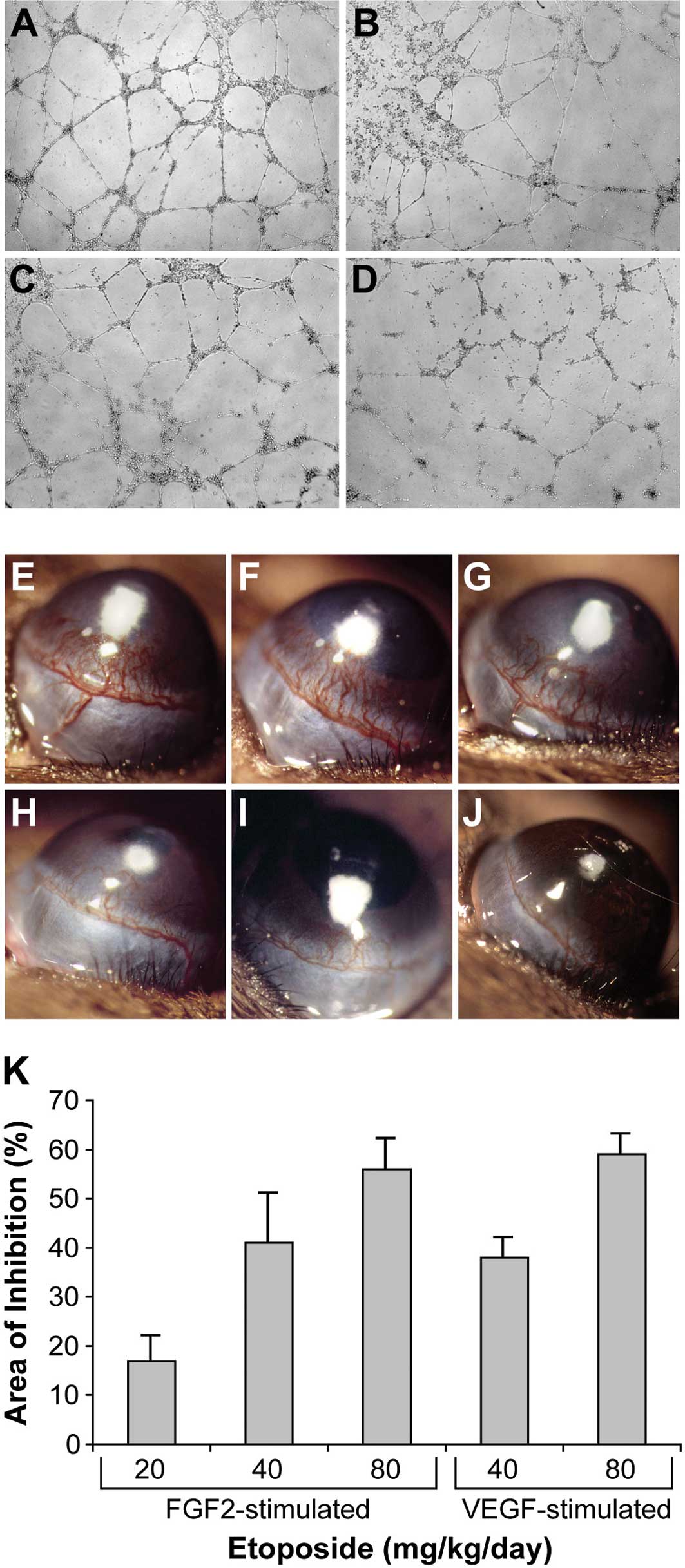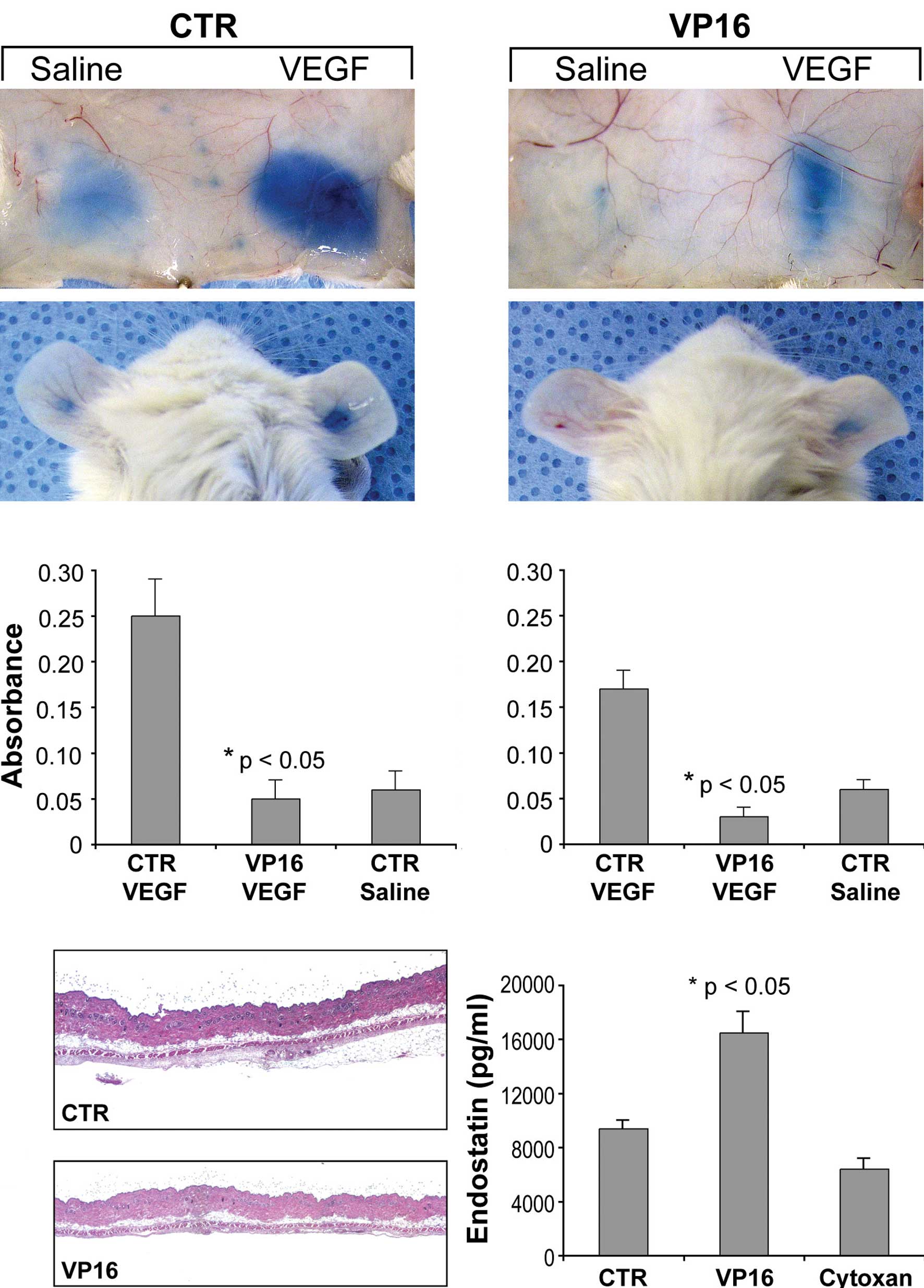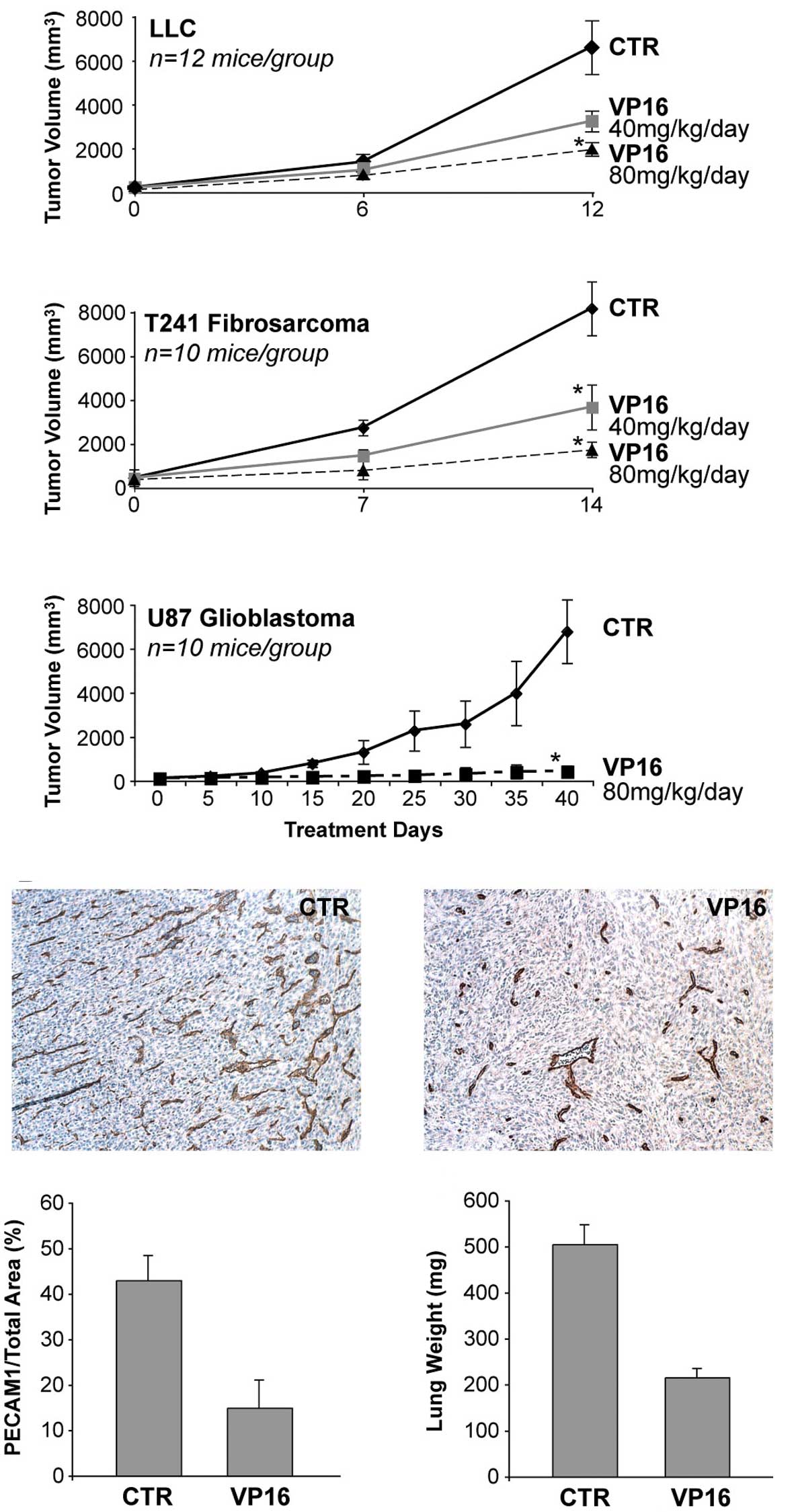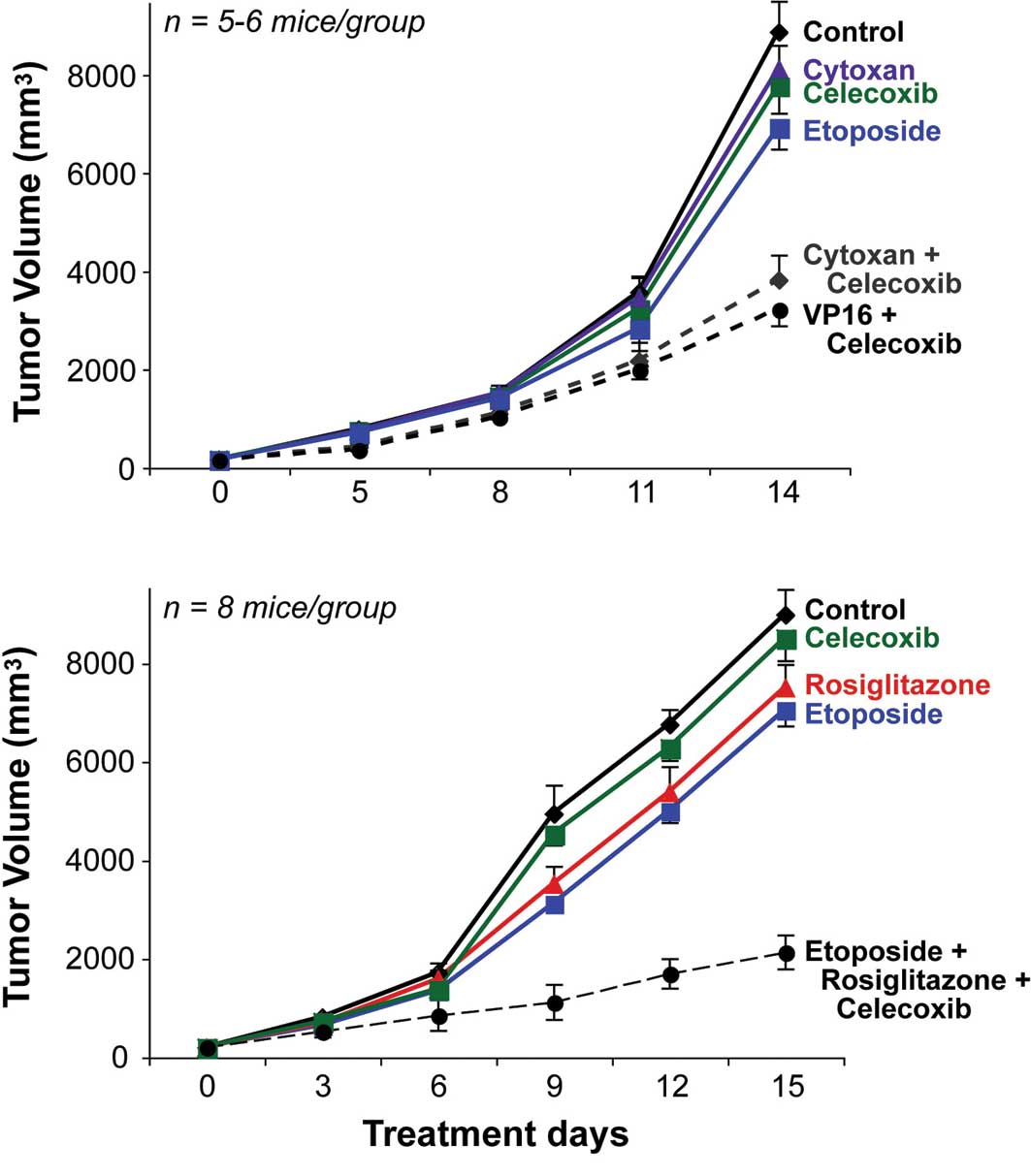|
1.
|
Browder T, Butterfield CE, Kraling BM, et
al: Antiangiogenic scheduling of chemotherapy improves efficacy
against experimental drug-resistant cancer. Cancer Res.
60:1878–1886. 2000.PubMed/NCBI
|
|
2.
|
Klement G, Baruchel S, Rak J, et al:
Continuous low-dose therapy with vinblastine and VEGF receptor-2
antibody induces sustained tumor regression without overt toxicity.
J Clin Invest. 105:15–24. 2000. View
Article : Google Scholar : PubMed/NCBI
|
|
3.
|
Hanahan D, Bergers G and Bergsland E: Less
is more, regularly: metronomic dosing of cytotoxic drugs can target
tumor angiogenesis in mice. J Clin Invest. 105:1045–1047. 2000.
View Article : Google Scholar : PubMed/NCBI
|
|
4.
|
Kerbel RS and Kamen BA: The
anti-angiogenic basis of metronomic chemotherapy. Nat Rev Cancer.
4:423–436. 2004. View
Article : Google Scholar : PubMed/NCBI
|
|
5.
|
Folkman J: Angiogenesis: an organizing
principle for drug discovery? Nat Rev Drug Discov. 6:273–286. 2007.
View Article : Google Scholar : PubMed/NCBI
|
|
6.
|
Man S, Bocci G, Francia G, et al:
Antitumor effects in mice of low-dose (metronomic) cyclophosphamide
administered continuously through the drinking water. Cancer Res.
62:2731–2735. 2002.
|
|
7.
|
Kieran MW, Turner CD, Rubin J, et al: A
feasibility trial of antiangiogenic (metronomic) chemotherapy in
pediatric patients with recurrent or progressive cancer. J Pediatr
Hematol Oncol. 27:573–581. 2005. View Article : Google Scholar : PubMed/NCBI
|
|
8.
|
Vogt T, Hafner C, Bross K, et al:
Antiangiogenetic therapy with pioglitazone, rofecoxib, and
metronomic trofosfamide in patients with advanced malignant
vascular tumors. Cancer. 98:2251–2256. 2003. View Article : Google Scholar : PubMed/NCBI
|
|
9.
|
Sterba J, Valik D, Mudry P, et al:
Combined biodifferentiating and antiangiogenic oral metronomic
therapy is feasible and effective in relapsed solid tumors in
children: single-center pilot study. Onkologie. 29:308–313. 2006.
View Article : Google Scholar : PubMed/NCBI
|
|
10.
|
Aisner J and Lee EJ: Etoposide. Current
and future status. Cancer. 67:215–219. 1991. View Article : Google Scholar : PubMed/NCBI
|
|
11.
|
Kakolyris S, Samonis G, Koukourakis M, et
al: Treatment of non-small cell lung cancer with prolonged oral
etoposide. Am J Clin Oncol. 21:505–508. 1998. View Article : Google Scholar : PubMed/NCBI
|
|
12.
|
Ashley DM, Meier L, Kerby T, et al:
Response of recurrent medulloblastoma to low-dose oral etoposide. J
Clin Oncol. 14:1922–1927. 1996.PubMed/NCBI
|
|
13.
|
Alici S, Saip P, Eralp Y, Aydiner A and
Topuz E: Oral etoposide (VP16) in platinum-resistant epithelial
ovarian cancer (EOC). Am J Clin Oncol. 26:358–362. 2003. View Article : Google Scholar : PubMed/NCBI
|
|
14.
|
Martin M, Lluch A, Casado A, et al:
Clinical activity of chronic oral etoposide in previously treated
metastatic breast cancer. J Clin Oncol. 12:986–991. 1994.PubMed/NCBI
|
|
15.
|
Kebudi R, Gorgun O and Ayan I: Oral
etoposide for recurrent/progressive sarcomas of childhood. Pediatr
Blood Cancer. 42:320–324. 2004. View Article : Google Scholar : PubMed/NCBI
|
|
16.
|
Cavalli F, Sonntag RW, Jungi F, Senn HJ
and Brunner KW: VP-16-213 monotherapy for remission induction of
small cell lung cancer: a randomized trial using three dosage
schedules. Cancer Treat Rep. 62:473–475. 1978.PubMed/NCBI
|
|
17.
|
Bontenbal M, Planting AS, Verweij J, et
al: Second-line chemotherapy with long-term low-dose oral etoposide
in patients with advanced breast cancer. Breast Cancer Res Treat.
34:185–189. 1995. View Article : Google Scholar : PubMed/NCBI
|
|
18.
|
Folkman J: Tumor angiogenesis. Cancer
Medicine. Holland JF, Frei EI, Bast RCJ, Kufe DW, Pollock RE and
Weichselbaum RR: 5th edition. BC Decker Inc; Ontario: pp. 132–152.
2000
|
|
19.
|
Ma G, Masuzawa M, Hamada Y, et al:
Treatment of murine angiosarcoma with etoposide, TNP-470 and
prednisolone. J Dermatol Sci. 24:126–133. 2000. View Article : Google Scholar : PubMed/NCBI
|
|
20.
|
Drevs J, Fakler J, Eisele S, et al:
Antiangiogenic potency of various chemotherapeutic drugs for
metronomic chemotherapy. Anticancer Res. 24:1759–1763.
2004.PubMed/NCBI
|
|
21.
|
O'Reilly MS, Holmgren L, Shing Y, et al:
Angiostatin: a novel angiogenesis inhibitor that mediates the
suppression of metastases by a Lewis lung carcinoma. Cell.
79:315–328. 1994.PubMed/NCBI
|
|
22.
|
Panigrahy D, Singer S, Shen LQ, et al:
PPARγ ligands inhibit primary tumor growth and metastasis by
inhibiting angiogenesis. J Clin Invest. 110:923–932. 2002.
|
|
23.
|
Kamiyama H, Takano S, Tsuboi K and
Matsumura A: Anti-angiogenic effects of SN38 (active metabolite of
irinotecan): inhibition of hypoxia-inducible factor 1 alpha
(HIF-1alpha)/vascular endothelial growth factor (VEGF) expression
of glioma and growth of endothelial cells. J Cancer Res Clin Oncol.
131:205–213. 2005. View Article : Google Scholar
|
|
24.
|
Dvorak HF: Vascular permeability
factor/vascular endothelial growth factor: a critical cytokine in
tumor angiogenesis and a potential target for diagnosis and
therapy. J Clin Oncol. 20:4368–4380. 2002. View Article : Google Scholar
|
|
25.
|
Hong SY, Lee MH, Kim KS, et al:
Adeno-associated virus mediated endostatin gene therapy in
combination with topoisomerase inhibitor effectively controls liver
tumor in mouse model. World J Gastroenterol. 10:1191–1197.
2004.
|
|
26.
|
Sant VP, Nagarsenker MS, Rao SG and Gude
RP: Sterically stabilized etoposide liposomes: evaluation of
antimetastatic activity and its potentiation by combination with
sterically stabilized pentoxifylline liposomes in mice. Cancer
Biother Radiopharm. 18:811–817. 2003. View Article : Google Scholar
|
|
27.
|
Masferrer JL, Leahy KM, Koki A, et al:
Antiangiogenic and antitumor activities of cyclooxgenase-2
inhibitors. Cancer Res. 60:1306–1311. 2000.PubMed/NCBI
|
|
28.
|
Kerbel RS: Antiangiogenic therapy: a
universal chemosensitization strategy for cancer? Science.
312:1171–1175. 2006. View Article : Google Scholar : PubMed/NCBI
|
|
29.
|
Shaked Y, Emmenegger U, Francia G, et al:
Low-dose metronomic combined with intermittent bolus-dose
cyclophosphamide is an effective long-term chemotherapy treatment
strategy. Cancer Res. 65:7045–7051. 2005. View Article : Google Scholar : PubMed/NCBI
|
|
30.
|
Bocci G, Nicolaou KC and Kerbel RS:
Protracted low-dose effects on human endothelial cell proliferation
and survival in vitro reveal a selective antiangiogenic window for
various chemotherapeutic drugs. Cancer Res. 62:6938–6943. 2002.
|
|
31.
|
Hamano Y, Sugimoto H, Soubasakos MA, et
al: Thrombospondin-1 associated with tumor microenvironment
contributes to low-dose cyclophosphamide-mediated endothelial cell
apoptosis and tumor growth suppression. Cancer Res. 64:1570–1574.
2004. View Article : Google Scholar : PubMed/NCBI
|
|
32.
|
Needle MN, Molloy PT, Geyer JR, et al:
Phase II study of daily oral etoposide in children with recurrent
brain tumors and other solid tumors. Med Pediatr Oncol. 29:28–32.
1997. View Article : Google Scholar : PubMed/NCBI
|
|
33.
|
Doll DC, Kasper LM, Taetle R and List AF:
Treatment with low-dose oral etoposide in patients with
myelodysplastic syndromes. Leuk Res. 22:7–12. 1998. View Article : Google Scholar : PubMed/NCBI
|
|
34.
|
Hainsworth JD: Extended-schedule oral
etoposide in selected neoplasms and overview of administration and
scheduling issues. Drugs. 58(Suppl 3): 51–56. 1999. View Article : Google Scholar : PubMed/NCBI
|
|
35.
|
Zucchetti M, Pagani O, Torri V, et al:
Clinical pharmacology of chronic oral etoposide in patients with
small cell and non-small cell lung cancer. Clin Cancer Res.
1:1517–1524. 1995.PubMed/NCBI
|
|
36.
|
Lowis SP, Newell DR and Pearson AD:
Exposure and schedule dependency of etoposide in neuroblastoma and
leukaemia cells in vitro. Eur J Cancer. 31A:622–626. 1995.
View Article : Google Scholar : PubMed/NCBI
|
|
37.
|
Dombernowsky P and Nissen NI: Schedule
dependency of the antileukemic activity of the
podophyllotoxin-derivative VP 16-213 (NSC-141540) in L1210
leukemia. Acta Pathol Microbiol Scand [A]. 81:715–724.
1973.PubMed/NCBI
|
|
38.
|
Schirner M, Hoffmann J, Menrad A and
Schneider MR: Antiangiogenic chemotherapeutic agents:
characterization in comparison to their tumor growth inhibition in
human renal cell carcinoma models. Clin Cancer Res. 4:1331–1336.
1998.
|
|
39.
|
Nilsson UW and Dabrosin C: Estradiol and
tamoxifen regulate endostatin generation via matrix
metalloproteinase activity in breast cancer in vivo. Cancer Res.
66:4789–4794. 2006. View Article : Google Scholar : PubMed/NCBI
|
|
40.
|
Ma L, del Soldato P and Wallace JL:
Divergent effects of new cyclooxygenase inhibitors on gastric ulcer
healing: shifting the angiogenic balance. Proc Natl Acad Sci USA.
99:13243–13247. 2002. View Article : Google Scholar : PubMed/NCBI
|
|
41.
|
Nagashima M, Asano G and Yoshino S:
Imbalance in production between vascular endothelial growth factor
and endostatin in patients with rheumatoid arthritis. J Rheumatol.
27:2339–2342. 2000.PubMed/NCBI
|
|
42.
|
Yu JL, Rak JW, Coomber BL, Hicklin DJ and
Kerbel RS: Effect of p53 status on tumor response to antiangiogenic
therapy. Science. 295:1526–1528. 2002. View Article : Google Scholar : PubMed/NCBI
|
|
43.
|
Yap R, Veliceasa D, Emmenegger U, et al:
Metronomic low-dose chemotherapy boosts CD95-dependent
antiangiogenic effect of the thrombospondin peptide ABT-510: a
complementation anti-angiogenic strategy. Clin Cancer Res.
11:6678–6685. 2005. View Article : Google Scholar : PubMed/NCBI
|
|
44.
|
Girnun GD, Naseri E, Vafai SB, et al:
Synergy between PPARgamma ligands and platinum-based drugs in
cancer. Cancer Cell. 11:395–406. 2007. View Article : Google Scholar : PubMed/NCBI
|
|
45.
|
Khafif A, Canfield VA, Syzek EJ and Medina
JE: Results of phase I–II trial of concomitant hyperfractionated
radiation and oral etoposide (VP-16) in patients with unresectable
squamous cell carcinoma of the head and neck. Am J Otolaryngol.
24:1–5. 2003.
|
|
46.
|
Vaishampayan U, Fontana J, Du W and
Hussain M: Phase II trial of estramustine and etoposide in
androgen-sensitive metastatic prostate carcinoma. Am J Clin Oncol.
27:550–554. 2004. View Article : Google Scholar : PubMed/NCBI
|
|
47.
|
Bocci G, Tuccori M, Emmenegger U, et al:
Cyclophosphamidemethotrexate ‘metronomic’ chemotherapy for the
palliative treatment of metastatic breast cancer. A comparative
pharmacoeconomic evaluation. Ann Oncol. 16:1243–1252. 2005.
|
|
48.
|
Vanchieri C: When will the U.S. flinch at
cancer drug prices? J Natl Cancer Inst. 97:624–626. 2005.
View Article : Google Scholar : PubMed/NCBI
|
|
49.
|
Emmenegger U, Morton GC, Francia G, et al:
Low-dose metronomic daily cyclophosphamide and weekly tirapazamine:
a well-tolerated combination regimen with enhanced efficacy that
exploits tumor hypoxia. Cancer Res. 66:1664–1674. 2006. View Article : Google Scholar
|
|
50.
|
Verdrengh M and Tarkowski A: Impact of
topoisomerase II inhibition on cytokine and chemokine production.
Inflamm Res. 52:148–153. 2003. View Article : Google Scholar : PubMed/NCBI
|















